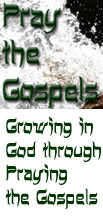A Resource by Mark D. Roberts |
|
Presbyterian Church USA:
The Saga Continues
by Rev. Dr. Mark D. Roberts
Copyright © 2007 by Mark D. Roberts
Note: You may download this resource at no cost, for personal use or for use in a Christian ministry, as long as you are not publishing it for sale. All I ask is that you give credit where credit is due. For all other uses, please contact me at mark@markdroberts.com. Thank you.
Encouraging
Signs in Church Property Disputes 
Posted for Friday, March 2, 2007
I'm interrupting my series on Loving Your Enemies to deal with
a significant story that I've been following, and that I expect
will tweak your interest as well. I'll get back to the series
soon.
This post is not about loving your enemies, though given what
often happens when a particular church decides to leave a denomination,
you might think to the contrary. Sadly, it sometimes seems that
when a church says to a denomination, "After much prayer
and consideration, we believe that we no longer fit with you,
and need for the sake of our faith and mission to find a better
denominational fit," the denomination declares that church
to be the enemy. Then, given the litigious society in which we
live, such "enemies" usually end up in secular court,
spending lots of God's money fighting over who really owns God's
property, and in the process both taking God's money away from
God's mission and violating the plain teaching of God's Word.
1 Corinthians 6 makes it abundantly clear that Christians are
not to sue Christians in secular courts. The passage concludes:
In fact, to have lawsuits at all with one another is already
a defeat for you. Why not rather be wronged? Why not rather
be defrauded? But you yourselves wrong and defraud—and
believers at that. (1 Corinthians 6:7-8)
Jesus's teaching on "loving enemies" by "turning
the other cheek" and "walking the second mile" might
indeed be relevant here, after all.
But I've been following a story that gives me hope, hope that
my own denomination might find a way to deal with church property
disputes in a manner that is consistent with Scripture and with
the teaching of Jesus. Just maybe . . . .
The story began when the Presbytery of Mississippi voted last
November not to enforce the property clause in the Book of
Order of the Presbyterian Church USA. This clause states
that all church property is "held in trust . . . for the
use and benefit of the Presbyterian Church (U.S.A.)" (G-8.0201).
This clause is usually interpreted to mean that if a particular
church chooses to leave the denomination, that church cannot
keep its property. But the Presbytery of Mississippi, in a carefully
worded statement, voted in November 2006 to put the larger
unity of the Church of Jesus Christ ahead of denominational ties.
The presbytery statement included the following affirmations.
The presbytery:
1. Desires all its particular churches to remain in fellowship
with each other under the jurisdiction of the Presbytery;
2. Resolves that pure preaching of the gospel and right
administration of the sacraments are constitutive of the church,
that our unity, purpose, and mission are found in Jesus Christ
and nowhere else, and that decisions affecting ownership of
property are subordinate to, and should support, our spiritual
unity in Christ;
3. Resolves that the Great Ends of the Church found in G-1.0200
summarize the mission of this Presbytery and explain the purpose
for the existence of the Presbyterian Church (U.S.A.);
4. Resolves that whenever particular churches of this Presbytery
pursue the Great Ends of the Church they are in fact using
their property for the benefit of this Presbytery and of the
Presbyterian Church (U.S.A.);
5. Trusts its particular churches to make their own decisions
concerning how best to use their property to accomplish the
Great Ends of the Church;
6. Resolves that property has not been, is not, and shall
not be a basis for our unity or an opportunity for division
among us; . . .
10. Resolves that it shall take no action to enforce any general
trust interest claimed by any higher governing body against
any property, real or personal, held by any of its particular
churches while they remain under its jurisdiction;
11. Resolves that it will not resist any particular church
of the Presbytery of Mississippi which would ask the courts
of the State of Mississippi to clear its property of any claims
made by higher governing bodies against that property; and
The statement includes a lengthy and biblically-based theological
rationale for its various affirmations.
Following the passing of this statement, three churches in the
presbytery sought to have title to their churches clearly and
legally vested in the churches. Several lawsuits ensued. Yet
in the February 24th meeting of the Presbytery of Mississippi,
the body voted strongly to settle the lawsuits amicably. In other
words, the presbytery will not fight to keep the title to the
property of its individual churches. (This story was reported
in The Layman
Online.)
What impresses me in this story is the vision of the Presbytery
of Mississippi, one that extends to the whole church of Jesus
Christ and not simply to its Presbyterian wing. Rather than using
up God's mission money to fight over the legal ownership of God's
property, the presbytery sees that it may be consistent with
the interest of the Presbyterian Church USA to allow a church
to own its own property, even if that church chooses to withdraw
from the denomination. The presbytery is saying, in effect, that
the Presbyterian Church USA is not about self-preservation, but
about the gospel of Jesus Christ and the ministry of His whole
church. This is a gutsy move, and a controversial one. It is
already being tested in the courts of the Presbyterian Church
USA. How sad it would be if these courts ended up deciding that
Presbyterian interests outweigh the interests of the broader
kingdom of God!
I believe the Presbytery of Mississippi has provided a way out
of a bind that has the potential to further divide and weaken
the Presbyterian Church USA (and other denominations, notably
the Episcopal Church USA). Since our Constitution says that property
is held in trust for the denomination, this seems at first to
imply that the denomination must hang onto ownership at all costs.
But the Presbyterian Church USA is not committed to itself, but
to Jesus Christ. Our "Great Ends" are not about self-preservation,
but about the kingdom of God. If we could ever admit that to
allow a church to leave the denomination might be better for
the kingdom, then we could also grant that such a departure would
be consistent with the true mission of the Presbyterian Church
USA.
I have no idea if this holds up legally. But I am persuaded
of its theological merit. And I'm not saying this simply because
the churches that might leave the Mississippi Presbytery are
more conservative ones. In fact, I'd much rather that conservative
churches do not leave the PCUSA. Furthermore, my own
presbytery, the Presbytery
of Los Ranchos, tends to be a more conservative and evangelical
presbytery. Some of our churches don't line up with the majority
theologically, however. If one of these churches, after a careful
and prayerful process, decided that it could fulfill its mission
better in another denomination, I would be willing to examine
its situation and to vote to release it with its property, even
though this would theoretically weaken my own presbytery and
diminish our property holdings.
The great challenge for denominations such as mine is to realize
that they might need to decrease so that the Church of Jesus
Christ can increase. This realization would come only if a denomination
were to recapture its proper identity as a servant of Christ,
and, indeed, a wineskin of the gospel. In fact, this sort of
insight would require no less than a miracle of Christ. But miracles
are possible. The example of the Presbytery of Mississippi convinces
me that they still happen today, even in the Presbyterian Church
USA.
Home
|














